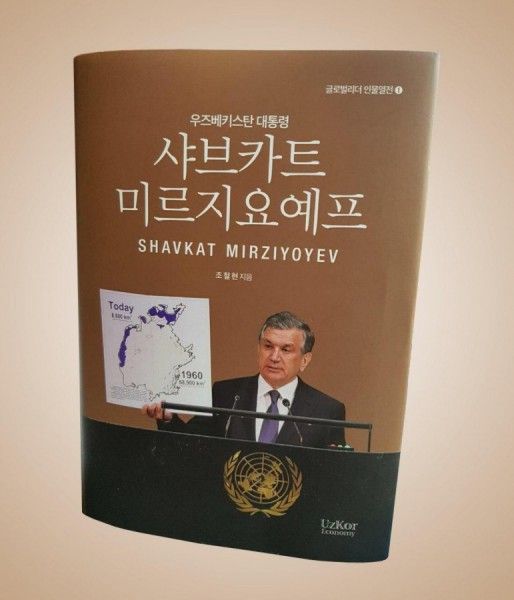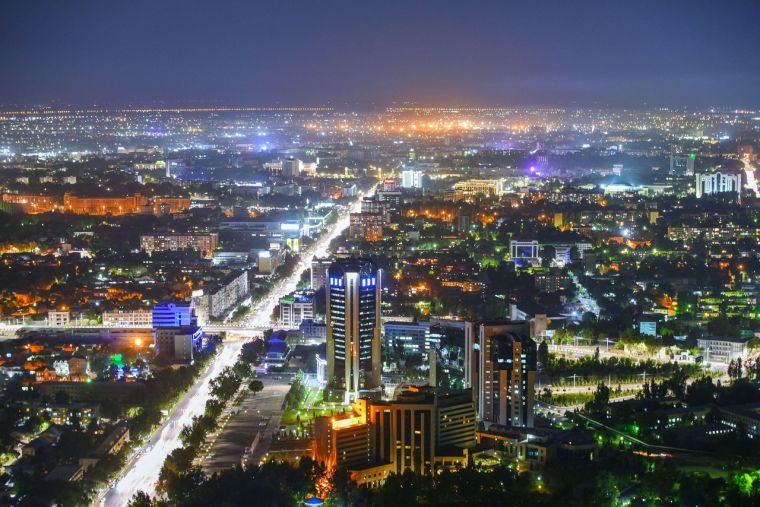Tashkent city



People who used to practice wresting should know the following rule: wrestler knows the other wrestler by one glance. If you remember Mr. Lee Myon Bak who was the President of South Korea in 2008-2013 and whose book called “Magic does not happen” became popular in our country. In his book the author remembers the meetings with Malaysian and Singaporean state leaders when he was the construction manager at “Hyundai”. Looking at those leaders he admired them and concluded that those countries would prevail Korean development.
It is true that one can surprise Korean with everything, but in order to surprise them working hard one should at least be Malaysian or Singaporean. It was even noted by Sherzodkhon Qudrakhodjayev in his Facebook comment. But our President’s dedication, limitless energy and efforts, love to Motherland, initiative and fruitful new ideas surprised Koreans.
As the proof of the aforesaid idea, last month the 320- pages book under the title “Shavkat Mirziyoyev is The President of Uzbekistan” was introduced to public in Korean language.
The book analyzes the developments initiated by the President Mirziyoyev. Liberalization of economy, identifying specific measures on attracting and protecting foreign investment, liberalization of foreign currency, strengthening social protection of population, new policy towards provinces, freedom of speech and protection of principles of constitutional rights, overall democratization and liberalization of the society….It was noted that these were the initial results of new developments.
By the way, when hearing about our President visiting various places with a very short time between destinations, people surprise by asking questions “When does this person have a rest?” For example, recently the leader of the country has got acquainted with construction works in Tashkent international airport named after Islam Karimov. The service capacity of the airport is expected to rise up to 1,5 thousand passengers. The project is jointly funded with South Korean bank. The President who closely studied the situation offered his own suggestions on developing the infrastructure.
“The airport is the entrance to Uzbekistan that’s why it must possess all convenience,” underlined President.
The leader of our country has also visited Tashkent Power Plant, where he participated in the opening ceremony of the new steam-gas block. He pressed the start button of 370 MW steam-gas engine. A number of young specialists who received practical knowledge abroad and in Navoi Power Plant were employed.
The President who visited “Akfa Medline” medical center noted the importance of private medical centers: “If the private medical centers increase, the competition of this market will grow resulting in price decrease. It is very important factor.”
In its turn, the Head of the country gave instructions to establish the branch of South Korean medical institute in our country. As a result the price for the medical services should not increase dramatically.
“I learned the people’s situation. I treated elders as my brothers and young as my sons…” wrote Amir Temur in his “Temur’s collection”.
It is true that a person who studies the reality of ordinary people will receive public affection.
In conclusion, if we take our President’s qualities such as dedication, initiative, hardworking and patriotism as an example and perform our works better then our Motherland will prosper even better.
Press service of Muslim Board of Uzbekistan

Tashkent - Capital of Uzbekistan General information about Tashkent Tashkent is the capital of Uzbekistan and is a metropolis of over 2.5 million people. The city is set out as a grid of straight, wide streets and avenues, interspersed with many green areas (parks, squares, and gardens) and fountains. This marvelous city embodies the modern elegance of many other capitals of the world; at the same time, as an eastern city, Tashkent has its own unique flavour. It tastefully combines medieval buildings that look like they're from the pages of ancient oriental tales, with elegant European architecture from the time of the Turkestan governorship, concrete 'blocks' from the Soviet era and, finally, sparkling high-rise commercial buildings made of glass and concrete that represent a new era of independent Uzbekistan. Tashkent, Uzbekistan – Picture
Amir Temur Museum More pictures of Tashkent, Uzbekistan History of Tashkent Tashkent is one of the oldest cities on the Great Silk Road between China and Europe. The earliest references to Tashkent as a city settlement appeared in written sources in the 2nd century BC. In the Chinese annals the city is called Yueni or Shi; in the records of the Persian king, Shampur, it appears as Chach; and in other Arabic sources, Shash. The name Tashkent first appeared in Turkish documents of the 9th to 12th centuries. From ancient times, a favourable geographical position and mild climate made Tashkent one of the main Silk Road cities. In the 14-15th centuries it was the part of the Timurid Empire, and in the 16th century it was under the control of the Sheibanids dynasty. In 1865, after the conquest of Mikhail Chernyaev, Russian military leader, the city became under the rule of the Russian Empire and Russian government was established here. In 1930 Tashkent was declared the capital of Uzbekistan, former Uzbek SSR. Tashkent
What to do in Tashkent Tashkent sights Many of Tashkent's tourist sights are concentrated in the Old City, which is one of the few districts that has preserved its traditional culture in the rapidly-changing metropolis. The spirit of old Tashkent lives here, in the cozy courtyards of the hospitable mahallahs, the bustling Chorsu Bazaar, and the blue domes of the Khast Imam complex. In this part of the city there are artisans, teahouses, and bakeries. Other Tashkent sights worth visiting include the Tashkent TV Tower, the German Church, the Polish Church, Amir Temur Square with the famous Tashkent astronomical clock, Independence Square, and the former residence of Prince Romanov, which was designed by architects
Prepeared by Imam Bukhari Tashkent Islamic Institute , Department of languages , English teacher Kadirov Farrukh